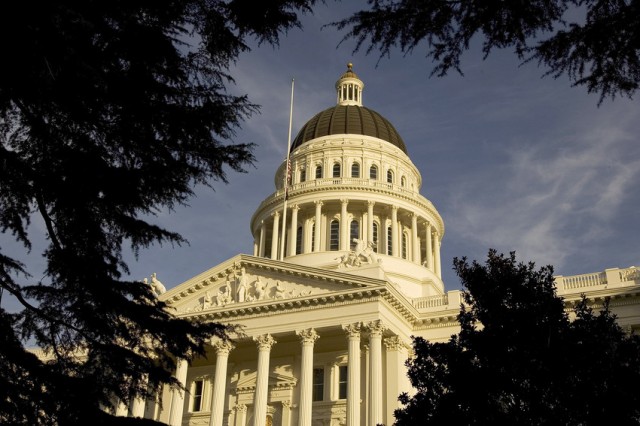
Three state senators in exile. Three explosive allegations of political wrongdoing. And now, three new rules that leaders of the state Senate hope will change both behavior around the state Capitol and public perception of that behavior.
"It is time, I believe, that we reserve out full and undivided attention to the people's business," said state Sen. Kevin de León (D-Los Angeles) during floor debate on Monday on the trio of new standing rules for the upper house.
Each of the rules is simply part of the operating structure of the Senate; none apply to the Assembly, and none have to be signed into law by Gov. Jerry Brown. As such, they are not binding in the same way as a state law. However, they take effect almost immediately, and any effort to rescind them would likely be questioned and criticized.
The new rules ban senators from holding political fundraising in the month leading up to the June 15 budget deadline, establish whistle-blower protections for staffers or others who see wrongdoing and create the position of an independent Senate ombudsman to investigate ethics complaints.
The ombudsman, said Senate President pro Tem Darrell Steinberg (D-Sacramento), is "somebody whose job it is to prevent a problem before it becomes embarrassing to the individual, and most importantly, before it becomes embarrassing to the institution itself."